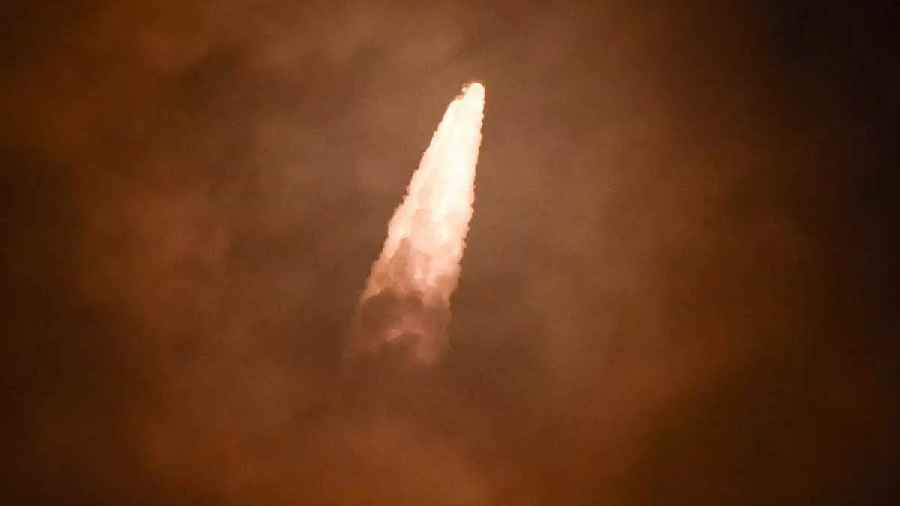An aerospace startup on Friday launched India’s first privately funded rocket from the Sriharikota island spaceport, the rocket’s 81km-altitude flight described as a landmark event in the private sector’s role in the country’s space activities.
The Vikram-S rocket, designed and built by Skyroot Aerospace, a four-year-old Hyderabad-based company, ferried three test payloads -- two Indian and one Armenian -- during its 291-second flight before it crashed into the Bay of Bengal.
The suborbital “technology demonstration flight” with a lift-off weight of 545kg was intended to validate key technologies for Skyroot’s future rockets, which will aim at higher altitudes and o rbital flights, the company said.
Skyroot, which has drawn $68 million (about Rs 550 crore) from private investors, is hoping to offer low-cost space launch services to customers through its series of Vikram-1, Vikram-2, and Vikram-3 rockets, designed to put 290kg to 815kg payloads into different kinds of orbits. The company, co-founded by Pawan Chandana, an aerospace engineer and IIT Kharagpur alumnus, and Bharath Daka, an electronics engineer and IIT Madras alumnus, has claimed that “launching satellites to space will soon become as easy as booking a cab -- quick, precise, and affordable”.
“The Vikram-S mission has been successful based on quick flight data analysis, which has confirmed that data points related to all the aspects of the mission performed as per expectations,” said Chandana, Skyroot’s chief executive officer. Skyroot has said the Vikram rockets have been crafted for the small satellite market and incorporate unique features for “mass production and affordability”.
A Vikram-1 can be assembled in 24 hours while a Vikram-2, meant for heavier payloads, can be assembled in 72 hours, it said. The company estimates a global launch market for 20,000 small satellites over the next decade. A space de par tment official described the Vikram-S launch as “perhaps the most important milestone for the Indian private space sector”.
He attributed the achievement to a new entity the Centre had established two years ago to enhance private sector participation in space activities. The launch “hints at the rapid transformative journey we’re witnessing in India’s space sector”, Pawan Goenka, chairperson of the Indian National Space Promotion and Authorisation Centre (InSpace), said in a statement after the launch.











